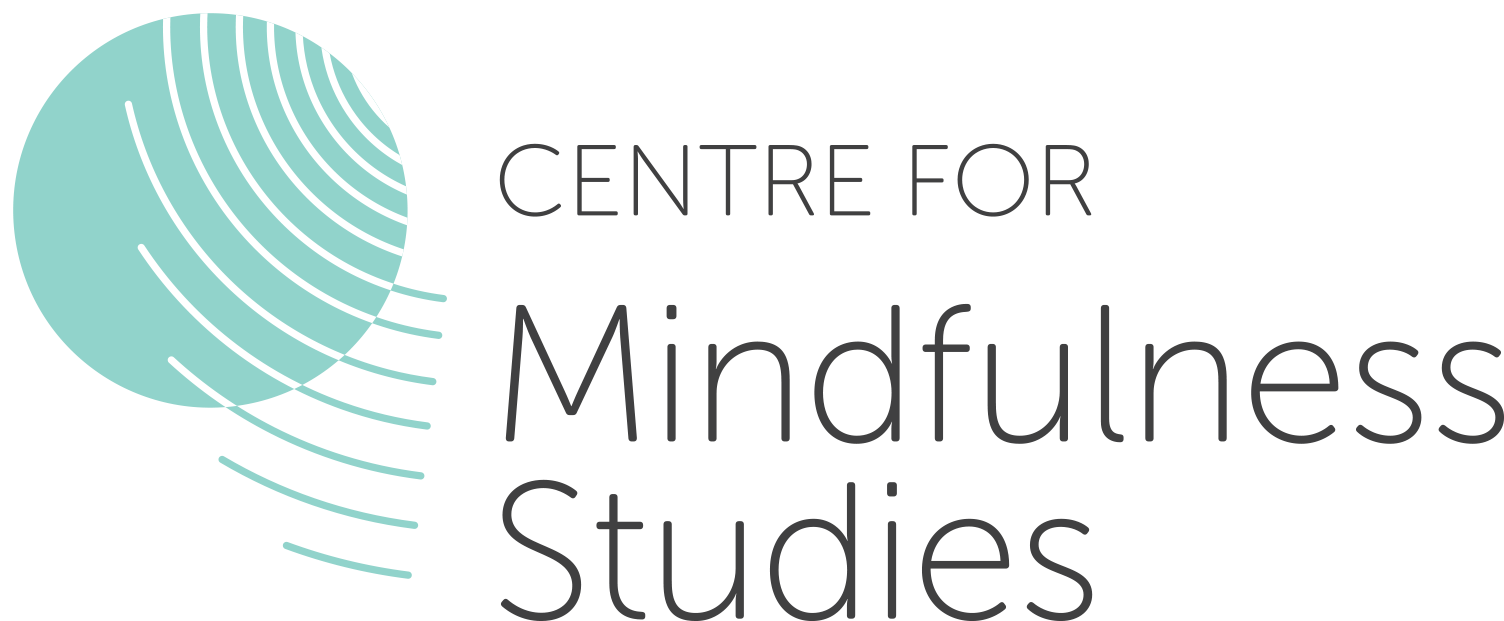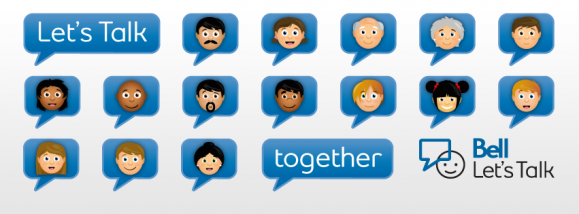Ending Mental Health Stigma Through Mindfulness
Today is Bell Let’s Talk- a campaign from Bell Canada to address the stigma of mental health, while raising funds for its Bell Let’s Talk Community Fund. Thanks to this fund, our clinical research collaboration with St. Joseph’s Health Centre received the funding it needed to continue. We’d like to thank Bell Lets Talk for its commitment to mental health, and the various ways it has worked to address the stigma and funding gap that prohibits vital research and front-line work.
This year, working in partnership with Queen’s University, Bell Let’s Talk promotes 5 ways to end the stigma around mental health.
1. Language matters
2. Educate yourself
3. Be kind
4. Listen and ask
5. Talk about it
These 5 points can lend themselves to the practice of mindfulness. Scientific evidence is showing mindfulness-based therapies are effective in alleviating many symptoms of mental illness. With this in mind, The Centre for Mindfulness Education Director and University of Toronto Associate Professor Dr. Patricia Rockman, expands on how mindfulness practices can be effective in reducing the stigma associated with mental illness.
1. Language matters
Mindfulness can assist us with tools to engage in speech and actions so that we can avoid contributing to the prejudice and stigma that surrounds mental illness. Mindfulness brings awareness to what we are saying so that we do not unintentionally hurt others.
So often we react automatically, without thinking, only to perhaps regret what we have said. Mindfulness requires that we “STOP” – Stop, Observe, Take a breath and Proceed in the present, which allows us to bring awareness to the present moment as best we can. This can be challenging, so it is important to remember that when we do say something harmful, we can always begin again. Mindfulness involves intention. If we create an intention to engage in language that is not harmful to others we can monitor our speech. Monitoring changes behaviour.
2. Educate yourself
Mindfulness asks that we bring a “beginner’s mind” to our experience, noticing our old biases to be able to see all situations anew, and further asks us to get comfortable with uncertainty. With beginner’s mind, we attend to our experience and the experience of others with an open mind. Being aware and detached from judgment helps us observe our direct experience in the present moment, rather than through our interpretations and conclusions.
The first step in educating ourselves about mental health is to recognize our own prejudices and the common cultural view that mental disorders “don’t really exist.” Once we recognize mental health problems as medical conditions, versus seeing them as personal failings, this recognition immediately changes our attitude. In this way we can be open to learning about the signs and symptoms of these painful and impairing conditions, which increases our understanding and empathy.
Mental illnesses can be frightening. It scares us when we think that someone could “lose his/her mind” and lose control. We tend to be self-referential, imagining what this would mean if it happened to us. We tend to be afraid of that which we don’t understand; we have a tendency to avoid what we fear. By increasing our knowledge and understanding of mental illness, we reduce the fear.
3. Be kind
Mindfulness practice increase compassion over time. It does this by developing the capacity to be kind to ourselves, accepting ourselves for who we are and not what we imagine we ‘should’ be; therefore allowing us to accept others as they are, and not as we imagine they ‘should’ be. In this practice, we begin to understand the necessity of community and inclusivity. We experience the value of service to others and the joy these actions bring. The practice of mindfulness is best done with others. It reminds us of our interdependence and what it is to be human. When we are kind to others we also help ourselves.
[su_note note_color=”#318942″ text_color=”#ffffff” radius=”5″]“Loving Kindness” meditation is a particular stream of meditative practice. To further understand the practice, we recommend reading 18 Science-Based Reasons to Try Loving-Kindness Meditation from Emma Seppälä, Ph.D, Associate Director at the Stanford University Center for Compassion and Altruism Research and Education. If you’d like to explore this practice, we offer a guided meditation on loving kindness from University of New Hampshire Health Services.[/su_note]
4. Listen and ask
Mindful listening practices teach us how to listen; how to really hear the other, without interruption, interpretation or assumption. We will make mistakes but mindfulness helps us to be alert to these and rectify our errors. Mindful listening requires that we get curious about our own experience and of those around us whether it is wanted or unwanted. This can make it easier to deal with what we are afraid of, such as those who suffer from mental illness. Curiosity reduces fear and helps us really listen and be where we are, with another person, in the moment.
5. Talk about it
Mindfulness is about acceptance. It is about reducing our separation from others and learning that we all suffer in one way or another. When we remember this we can see that whether we have a mental health condition or not, we all hurt, experience joy, live, get sick and die. If we do not see ourselves as different from the other we can reach out. We can recognize that we are all human. Mental health problems are really no different from any other health problems. We all need help. Talking about mental health reduces stigma. So start a conversation.
And by the way, my name is Pat and I suffer from anxiety. You?

